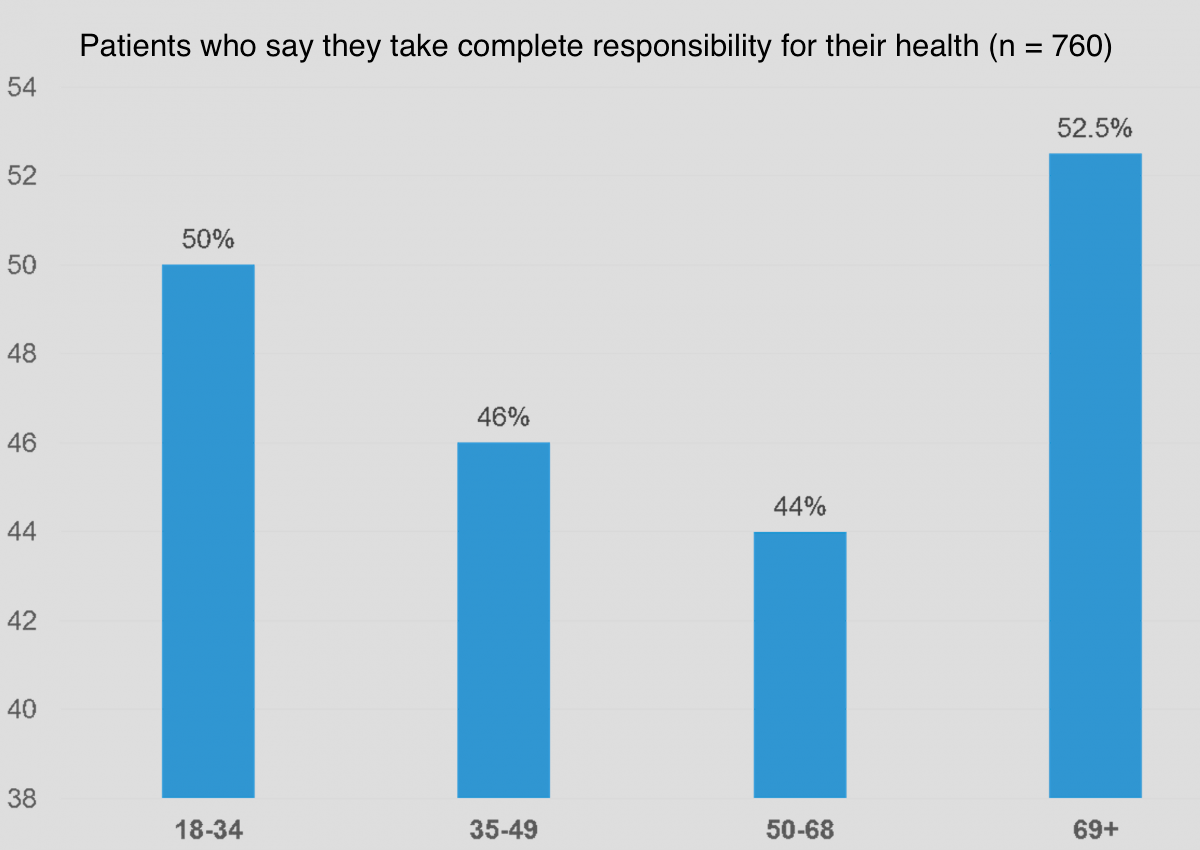 When it comes to the perception of who takes more responsibility for an individual’s care, patients and healthcare professionals may as well be on different planet. In a recent survey from Xerox’s health division, patients and the healthcare professionals providing and insuring their care showed a major disconnect in who takes the most responsibility: patients think they manage their healthcare; providers and payers think it's up to the healthcare professionals.
When it comes to the perception of who takes more responsibility for an individual’s care, patients and healthcare professionals may as well be on different planet. In a recent survey from Xerox’s health division, patients and the healthcare professionals providing and insuring their care showed a major disconnect in who takes the most responsibility: patients think they manage their healthcare; providers and payers think it's up to the healthcare professionals.
"Right there, you have a group of people who are clearly not talking to each other," Rohan Kulkarni, vice president of stategy and portfolio for Xerox Healthcare Business Group told MobiHealthNews. "But there are a lot of challenges – the regulatory obligations the physicians have, and the health consumer is also probably busy with their own life and just doesn't have the time."
Out of a group of 761 US adults who purchase health insurance and make healthcare decisions for their household and 204 healthcare payers and providers, there are large disconnects in each groups’ assessment of who takes charge. Nearly 50 percent of the consumers say they take complete responsibility for their health, but less than six percent of healthcare professionals agree with that. And of those consumers, just five percent claim they don’t know how to take control of their care, but 40 percent of their payers and providers say otherwise.
“Consumers and healthcare professionals have very different views on patient empowerment and control,” said Kulkarni, adding that payers and providers are much less likely to believe patients are taking responsibility for their health than what patients perceive to be true.
"Health consumers and those that are in the business of providing care have an opportunity to refine their communication," he said.
Kulkarni thinks tools in the form of technology like apps and websites is the easy part of the equation. The challenge, he said, lies in getting both patients and physicians to shift how they think about healthcare as a whole
"As physicians, they tend to deal with things very episodically, and they need to be thinking about the patient and population health holistically," he said. "Health consumers are already shifting the way they think about things because they have to – they are faced with high deductible plans where it's going to be two, three, four thousand dollars out of pocket before it even kicks in. They are going to have to shop around, they are going to have to be more likely to leverage telemedicine, to use services at CVS and Walgreens; to manage it themselves."
And even though patients say they do the heavy lifting, many don’t think they need help: only 55 percent say they need the encouragement from their healthcare provider to make healthy lifestyle choices. Payers and providers aren’t buying that, with 90 percent of those respondents saying patients need encouragement.
On the subject of making choices and shopping around for healthcare, more discrepancies between the two survey groups abound. Payers and providers mostly think their patients are shopping around for the best healthcare, but only 34 percent of patients are actually more likely to do so than they did a year ago, and they are doing so for a different reason than the payer/provider group thinks. While payers and providers believe whether the patient’s insurance plan is accepted should be the top consideration, consumers say quality of care is their number one priority when selecting a provider.
Consumers have some conflicting sentiments: while nearly half said they don’t need encouragement from their healthcare providers, many said they want healthcare professionals more involved on a personal level. Over 63 percent polled said they wished their pharmacist, healthcare provider and insurance company were more connected to their personal care.
The shift towards consumer-centric health care will have to be felt by both patients and healthcare professionals, Kulkarni said.
"We see more websites and apps, and the proliferation of wearables has increased," he said. "There's just a whole lot of change occuring across the spectrum, we'll have to refine the way we talk about it."











